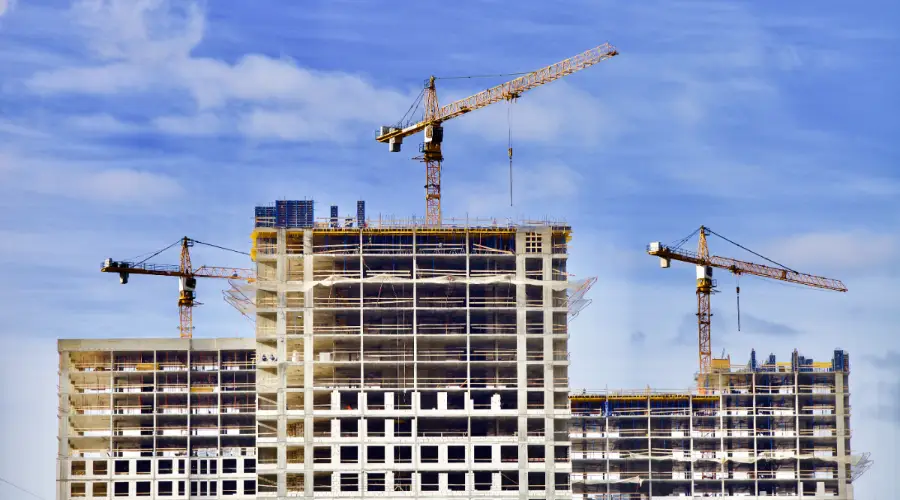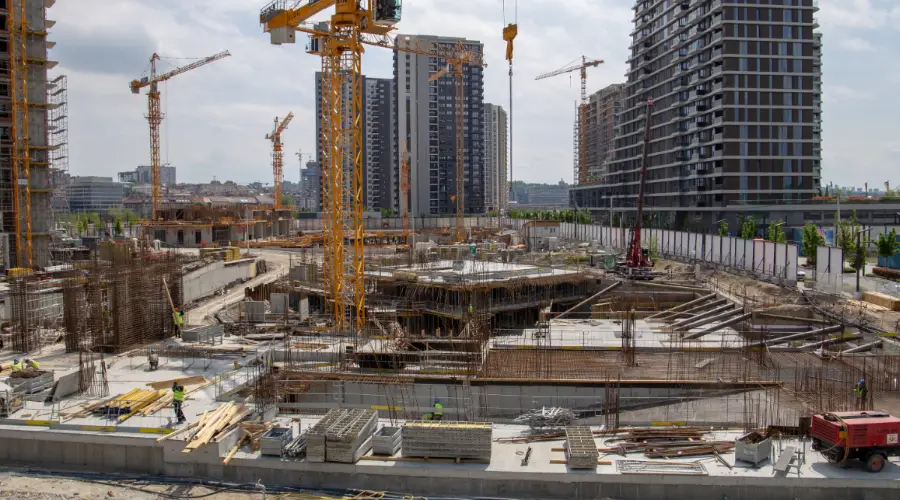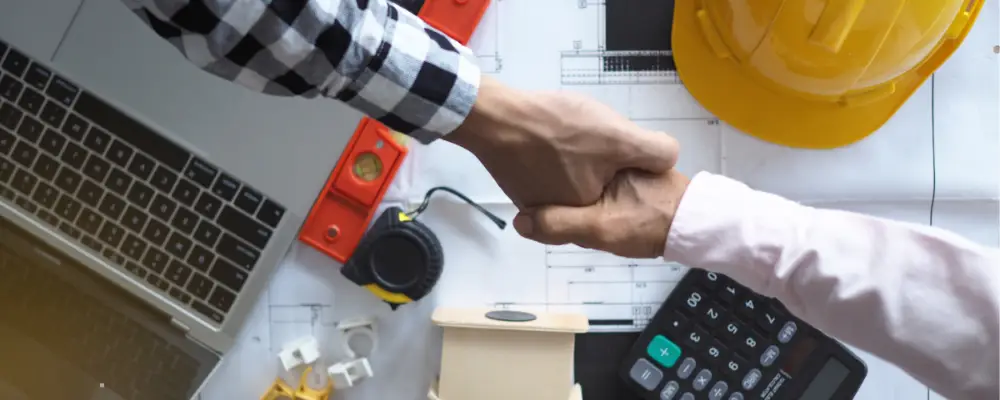We often see people working in a buzzing environment with hard hats and heavy machinery on construction sites. The main groups that separate the construction world are commercial and residential. While both have some common factors, several things provide major differences in how construction projects are built. This article will look at commercial building contractors to understand their purpose in building commercial constructions.
What is a Commercial Building Contractor?
Commercial building contractors are those who build projects to serve the people for their daily use. Different kinds of buildings, institutions, and industries fall into this category. For your easy understanding, just think of schools, hospitals, banks, shopping malls, complexes, and warehouses. They serve people for different purposes and not meant for people to live in them. Their intended purposes are retail, education, healthcare, and entertainment. Their major focus is on providing an efficient, feasible, and appealing design of the building.
Commercial building contractors must encompass complex systems like HVAC systems and data networks in commercial building projects. These structures must adhere to building codes and regulations. The most important consideration in commercial buildings is compliance, which includes environmental considerations, zoning laws, fire safety rules, and accessibility standards. More paperwork and frequent inspections are required by the commercial contractors while the project is going on.
Roles and Responsibilities of a Commercial Building Contractor
Depending on the project, a commercial building contractor may have different roles and responsibilities. They have to enrol in many roles during the construction process. The common responsibilities that can be undertaken by a commercial building contractor are as follows:
- Project Planning
A commercial building contractor’s main responsibility is to develop a project plan and deliver it on schedule. Some responsibilities include:
- Creating all the essential steps for developing the project and implementing details.
- Determining the equipment and tools needed to support the project and their procurement details.
- Predicting the risks associated with the project and defining the risk mitigation factors.
- Analysing the ways to meet legal and regulatory requirements.
- Establishing clear communication among the project participants.
- Project Management
Completing the project on time involves various construction management processes. Ensuring the availability of funds to keep the project progressing. Purchasing materials must be aligned to meet the project requirements and reach the construction site on time without any delay.
Buying or leasing the tools and machines needed for the building project. The contractor must recruit subcontractors to complete the project’s mentioned tasks. Intermediate payments have to be made by creating frequent progress reports. They can also ensure the skills and technical knowledge of the employees they hire. Payrolls can also be managed by commercial building contractors.
- Project Tracking
Based on the contract’s specifications and schedules, project tracking is essential for completing the project on time. Several activities involved are as follows:
- Quality Control
- Using effective construction methods to cut down on cost overruns.
- Verifying the constant and regular supply of building materials without any delay and advancing advance purchases.
- Guaranteeing safety measures on construction sites.
- Legal and Regulatory Issues
The construction project’s compliance with local municipal building codes is one of the responsibilities of the contractors. They must acquire all the necessary licenses and permits to progress construction work without any disruption.
- Health and Safety Issues
A building contractor has to implement proper procedures and raise awareness among the workers on construction safety. They also teach the operation of heavy machinery and equipment to avoid any injuries or accidents by misusing the equipment. Emergency issues and unforeseen challenges have to be addressed and communicated to the supervisor on-site properly to maintain the safety of the workers on site.
Types of Commercial Construction Projects
We will see the common types of commercial construction projects that have been widely built in the current marketplace are as follows:
- Grocery and Retail Stores
These structures can be frequently visited by customers to purchase their day-to-day products. These buildings must include more welcoming front areas for the free movement of people and aesthetic outlook.
- Restaurants
Compliance with guidelines set by the local municipal corporation is crucial for achieving success in building restaurants. The contractors have to model the structures by understanding the local regulations as well as the customers’ tastes and requirements.
- Lodging Facilities
Lodging facilities can be vital for building hotel and motel structures. While building these facilities, the contractor has to focus on issues like providing easy access, security, privacy, and comfort. Massive building structures require advanced professionals to integrate additional features into the building.
- Office Buildings

From small firms to skyscraping MNC corporations, commercial building contractors can construct a variety of office buildings. They have to set the infrastructure that adapts to multiple business frameworks.
- Industrial Buildings

Companies that produce products daily require a production area, machinery installation area, and storage place for manufactured products. The ceiling heights of the rooms can be adjusted for specific requirements. Industrial buildings can be constructed to meet the specific requirements of the client.
- Medical Facilities
Building hospitals requires more space for easy movement of patients. The structures must include rooms to house costly equipment used for treating patients. Huge auditoriums, bathrooms, waiting halls, scanning centres, etc. can be built with unique care and attention.
- Athletic Structures

Fitness centres, huge stadiums, etc., can be built for the safety of visitors by integrating advanced construction methods and emergency exits.
Benefits of Hiring a Professional Commercial Building Contractor
The key benefits of hiring professional commercial building contractors are discussed below for your clear understanding.
Experience and Expertise:
- Skilled teams with the knowledge to tackle construction challenges.
- Access to advanced technology and equipment for timely, budget-friendly completion.
Resources and Equipment:
- Strong supplier and subcontractor networks ensure timely material delivery at competitive prices.
- Utilisation of cutting-edge tools for efficiency and streamlined processes.
Time and Cost Savings:
- Efficient management of all project phases reduces delays and costly errors.
- Ensures on-time and within-budget completion.
Regulatory Compliance:
- Guarantees compliance with safety, environmental, and building codes.
- Appropriate licenses and permits reduce financial and legal risks.
Quality Assurance and Warranty:
- High-quality work backed by warranties for repairs or adjustments if needed.
- Assurance of professional handling of potential defects or issues.
How to Hire a Commercial Building Contractor?
- Clearly outline the project scope, materials, timeline, and budget.
- Gather contractor recommendations from trusted sources and online reviews.
- Shortlist contractors based on reputation, experience, and credentials.
- Interview multiple contractors to assess qualifications, communication, and past work.
- Request detailed written bids with itemised costs and compare carefully.
- Before finalising the contract, review it thoroughly to make sure all conditions are complete and clear.
- Maintain open communication and monitor project progress regularly.
- Follow the payment plan, postponing the last payment until the job is finished.
- Obtain any required paperwork, such as lien releases, warranties, and permits.
Choosing the Right Commercial Contractor for Your Project
Hiring a reputable and experienced contractor is vital for the success of commercial construction projects. Through careful research and evaluation, you can easily assess the credibility and experience of a construction contractor. By following the above steps, you can hire the right commercial contractor for your project.
The right contractor will deliver a well-executed project. They also provide a smooth construction journey throughout the project. Choose Brick and Bolt Construction Services as a result. As the best construction company in India, we have all the necessary documents and licenses to deliver first-class services with keen eyes on work and client satisfaction.
Conclusion
If you are a business owner planning to renovate your old space or looking to build a new commercial space, then Brick and Bolt is your right choice. Making the right choice is essential for the smooth running of your project. Our commercial construction process is simple and easy to understand. Raise a request and meet our experts. After a meeting, you will receive your planned design. At last, you will have the building of your dreams. We can create what you can imagine.

